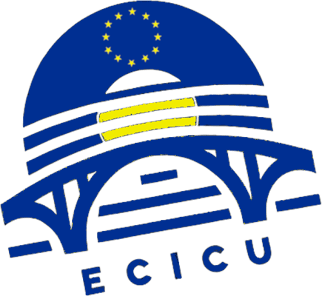Shared Culture: Celebrating What Unites Us
Highlights how common cultural expressions—like art, music, and festivities—can bring people from different backgrounds together, analyzing their impact on building collective identities in Europe.
11/18/20244 min read


In a world where cultural and social differences often take center stage, shared cultural expressions—like art, music, and festivities—emerge as invisible threads weaving connections between people of diverse backgrounds. In Europe, a continent shaped by centuries of exchanges, migrations, and fusions, these manifestations not only celebrate what unites us but also play a key role in building collective identities. This article explores how these forms of culture transcend barriers, foster cohesion, and reinforce a shared sense of belonging, analyzing their impact within the European context.
The Unifying Power of Art
Art, in its many forms—painting, sculpture, literature, or film—has a unique ability to speak a universal language that requires no translation. In Europe, where borders have shifted constantly and populations have mingled for millennia, art has served as a mirror of shared experiences. Works that capture themes like struggle, hope, or the beauty of everyday life resonate beyond linguistic or national divides.
For instance, artistic movements across the continent have often arisen from cross-pollination. Renaissance painters in the south absorbed techniques from the north, while Baroque musicians exchanged ideas across courts and cities. Today, the streets of European cities are filled with murals and exhibitions reflecting both local traditions and the voices of migrant communities, creating a visual dialogue that unites rather than separates. This artistic exchange not only enriches the cultural landscape but also invites people to see themselves in each other’s stories, strengthening a collective identity that transcends the individual.
Music as a Bridge Between Souls
If there’s one cultural expression that can instantly break down barriers, it’s music. Its ability to evoke emotions and connect people without words makes it a powerful vehicle for unity. In Europe, music has historically been a meeting ground, from folk melodies carried by medieval traders to contemporary rhythms blending sounds from around the globe.
The continent’s musical traditions showcase this convergence. Stringed instruments arriving from the Middle East centuries ago became integral to European classical compositions, while African and Caribbean rhythms have shaped modern genres like jazz and electronic music, echoing in clubs from Lisbon to Helsinki. In town squares and parks, impromptu jam sessions bring together musicians of different backgrounds, and the crowds listening—young and old, native and newcomer—sway to the same beat. This shared experience not only celebrates diversity but also creates a sense of community, reinforcing the idea of a plural, dynamic European identity.
Festivities: A Space for Collective Celebration
Festivities, with their rituals, foods, and traditions, are another cultural expression that unites people around moments of joy and reflection. In Europe, many celebrations have deep roots that have evolved over time, absorbing influences from various cultures and adapting to new contexts. These occasions provide a space where differences fade, and what prevails is the act of being together.
Winter festivities, for example, present in many forms across the continent, share common elements like lights, feasts, and family gatherings, regardless of specific religious or cultural beliefs. In spring and summer, outdoor festivals—with music, dances, and markets—draw diverse crowds who join in traditions that, while varying in detail, evoke a spirit of renewal and community. Even celebrations introduced by migrant communities, such as harvest festivals or independence days, have found resonance among locals, who participate with curiosity and enthusiasm. These festivities serve as a reminder that, beyond differences, there are universal human experiences everyone can share.
Impact on Building Collective Identities
In the European context, these shared cultural expressions are more than moments of entertainment; they have a profound impact on how collective identities are formed. Historically, Europe has been a mosaic of kingdoms, empires, and nations, each with its own narrative. Yet, art, music, and festivities have helped create a sense of “Europeanness” that doesn’t rely on homogeneity but on the ability to find common ground.
In today’s multicultural cities, where people of European, African, Asian, and other origins coexist, these cultural expressions act as social glue. A painting displayed in a gallery can spark conversations between neighbors who barely knew each other; a song played at a festival can get strangers dancing together; a meal shared at a celebration can mark the start of a friendship. These small acts build into a larger effect: they reinforce the idea that identity doesn’t have to be exclusive but can be inclusive and expansive.
Moreover, these cultural practices counter the narratives of division that sometimes dominate public discourse. At a time when polarization and fear of the “other” threaten cohesion, art, music, and festivities remind people of what they have in common. In doing so, they not only preserve diversity but turn it into a source of collective strength, shaping a European identity that is as diverse as it is united.
A Future of Shared Celebration
Celebrating what unites us doesn’t mean ignoring differences but recognizing that, amidst them, there are spaces of connection worth nurturing. In Europe, where history is filled with encounters and clashes, shared cultural expressions offer a way to look forward with optimism. The art that inspires, the music that moves, and the festivities that bring people together are more than traditions—they are acts of collective creation that shape stronger, more open communities.
As the continent continues to evolve, these forms of shared culture will remain essential for bridging people of different backgrounds. It’s not about erasing what makes each culture unique but highlighting what allows them all to coexist and thrive together. Ultimately, celebrating what unites us is a way to build a future where diversity isn’t a challenge but a constant celebration of our shared humanity.
ECICU - European Center for Interreligious and Cultural Understanding
Promoting dialogue and understanding among communities.
ECICU
Empowering Unity Through Cultural Understanding
© 2009. All rights reserved.
+33 624 506 770
